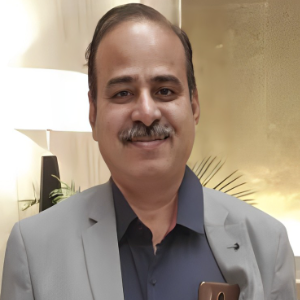Laser technology has revolutionized the field of dermatology and has made existing treatments, such as removing tattoos and treating wrinkles, much more efficient and patient-friendly. There are different types of lasers that can be used for skin conditions ranging from acne to scars. Lasers create light beams with specific wavelengths that can target and heat specific cells underneath the surface of the skin, without damaging the skin itself. Laser treatments are most commonly used to improve overall complexion and reduce wrinkles and acne scars. Some laser treatments, like CO2 lasers, can be used to resurface the skin by removing the outer layers of skin and stimulating the growth of new skin cells. Certain laser treatments can also remove unwanted hair, moles, and brown spots, while augmenting certain facial features such as the eyebrows or lips. Laser treatments, however, are not only used to improve the appearance of the skin. Vascular lasers can treat a variety of skin conditions by targeting and sealing off unwanted blood vessels. This technique can be used to treat skin conditions such as rosacea, telangiectasia, and spider veins. Although lasers can be very effective in treating many skin conditions, there are some risks associated with laser treatments, such as burns and discoloration. It is important to research different types of lasers and their associated risks carefully before embarking on a laser treatment. Additionally, patient should ensure that their dermatologist is experienced and qualified to perform the procedure. The potential cosmetic and medical improvements of laser treatments in dermatology have been increasingly realized over the past few decades. From improving overall complexion to addressing unwanted blood vessels, lasers can be a safe and effective way to treat many dermatological conditions. However, it is important to do your research and ensure that your dermatologist is qualified and experienced to perform the laser treatment.

Ravi M Rathod
KMCRI, India
Dechelette Corinne
La Peau Autrement, France
Irina Sergeeva
Novosibirsk State University, Russian Federation
George Sulamanidze
Plastic Surgeon at Clinic of Plastic and Aesthetic Surgery and Cosmetology TOTALCharm, Georgia
Nino Tsamalaidze
Ltd Karabadini+, Georgia
Lina Petrossian
California University of Science and Medicine, United States
Surajbala Khuraijam
Manipur Health Services, India
Shrutimita Pokhariyal
Symbio, India
Yasser Mohammed Hassanain Elsayed
Egyptian Ministry of Health, Egypt



Title : Paraneoplastic Autoimmune Multiorgan Syndrome or PAMS: Paraneoplastic pemphigus revisited
Sergei A Grando, University of California Irvine, United States
Title : Modern non-invasive methods for in vivo assessment of skin
Georgios N Stamatas, SGS, France
Title : Personalized and precision dermatology through the view of biodesign-inspired translational & data-driven applications: Revolutionary skin treatments for every concern in clinical dermatology integrating skin care experts and consumers
Sergey Suchkov, N.D. Zelinskii Institute for Organic Chemistry of the Russian Academy of Sciences, Russian Federation
Title : The next generation of threads: Lifting, volumization, and biostimulation in one powerful triple action
George Sulamanidze, Plastic Surgeon at Clinic of Plastic and Aesthetic Surgery and Cosmetology TOTALCharm, Georgia
Title : Lymphoproliferative diseases in the practice of a dermatologist
Irina Sergeeva, Novosibirsk State University, Russian Federation
Title : Art, skin, and dermatology: Interdisciplinary perspectives
Dechelette Corinne, La Peau Autrement, France
Title : Comparative efficacy of omalizumab and dupilumab in children with Chronic Spontaneous Urticaria (CSU): A retrospective cohort analysis
Molynna Nguyen, University of Toledo, United States
Title : "Mirror mirror on the skin” — A low-cost community strategy to reduce melanoma disparities in Washington, D.C.
Kayla Sampson, Georgetown University School of Medicine, United States
Title : Vitiligo: Not just an aesthetic disorder
Mateja Starbek Zorko, University Medical centre Ljubljana, Slovenia
Title : Personalized and Precision Medicine as a unique avenue to have the healthcare model renewed to secure the national biosafety: Advanced skincare solutions in individualized cosmetology, reconstructive plastic surgery and the modern beauty
Sergey Suchkov, N.D. Zelinskii Institute for Organic Chemistry of the Russian Academy of Sciences, Russian Federation